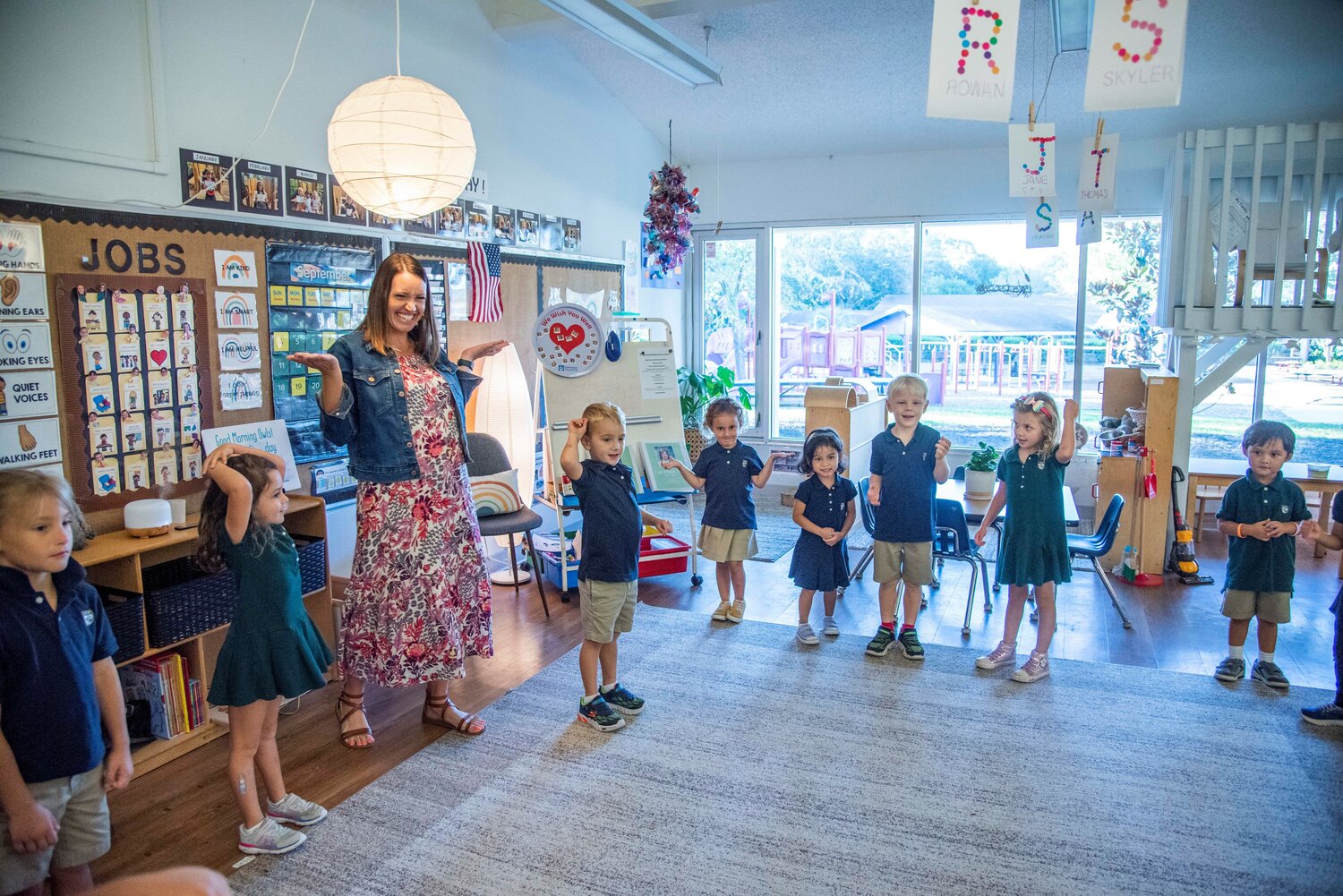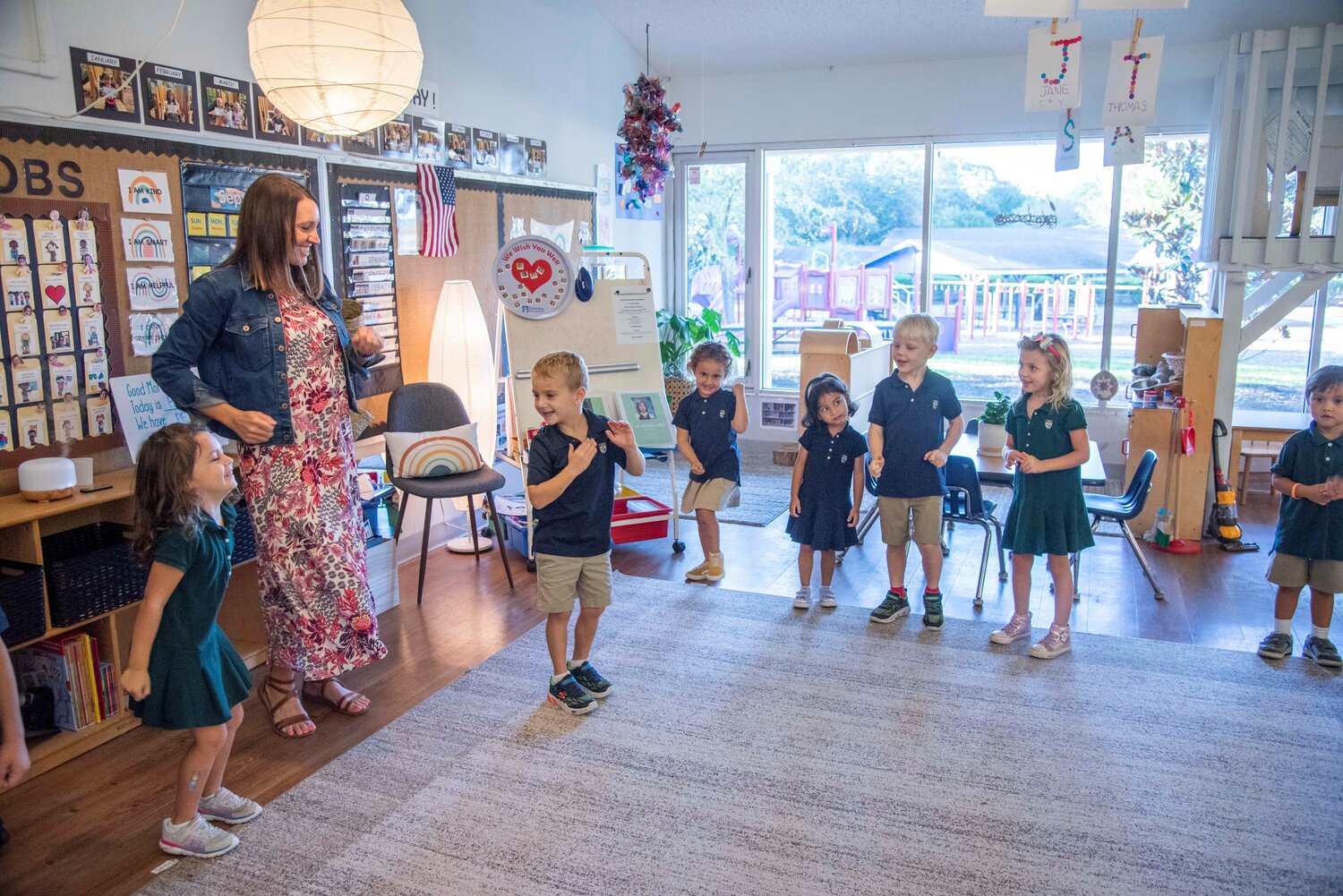Developing emotional intelligence through children’s songs
That song your child learned at school and is now singing on repeat might be more than you know; it might be the key to them developing strong emotional intelligence.
At Jacksonville Country Day School, every song our students sing is sung with a purpose. Singing and being exposed to music enhances the development of emotional intelligence and allows children the opportunity to experience, identify and manage their emotions.
Wendy Johnston, JCDS Early Learning (Pre-K 3 through kindergarten) team lead and expert in elementary education, breaks down the songs JCDS students sing every day, how they develop emotional intelligence through music, and why song and music are an integral part of a child’s development.
What are the benefits of singing songs at school?
We sing songs to develop routines, community, life skills, self-confidence, gratitude, friendships, manners, empathy and self-control. Singing also enhances memory, alertness and mood, and it's just plain fun to sing (and dance). For example, we celebrate others when someone gets new shoes, a haircut or loses a tooth. We wish others well when they are not able to be at school.
We are grateful to our Earth for providing food that we eat during snack time or lunch. Singing songs can enhance learning by engaging centers of the brain that are in charge of language, memory and concentration. Music can elevate our mood, spark creativity and encourage us to get our body moving.
What are some of the songs JCDS Early Learning students sing and why?
“It’s Pre K,” is played frequently in our pre-K 3 classrooms. The lyrics talk about “putting on my shoes, playing with friends, working it out and eating a snack.” These words promote independence, confidence and conflict resolution.
Pre-K 4 students enjoy singing, “My School Family,” and it is played during their morning meeting time. This song encourages students to practice greetings and develop friendships with each other and reminds everyone that we are part of a school community.
Kindergarteners often sing, “The Rules Rap,” which talks about self-control, working together and respecting boundaries, including when to use a big voice versus a quiet one.
How does singing songs build a child's emotional intelligence?
Music activates the areas of the brain involved in emotional processing. Young children's brains are in the process of rapid development. If I am singing a song about being special from my head to my toes and my friend is also singing it, I am more likely to experience a happy feeling about myself and my friend.
The same goes for developing mindfulness; when learning about an uncomfortable situation I might remember the words to the “S.T.A.R. Song”: ‘Stop, take a deep breath and relax before reacting in an impulsive way.’
Why is it important to develop emotional intelligence? What is emotional intelligence?
It is important to be able to manage your own emotions as well as understand the emotions of the people around you. Being able to identify one's emotions is the first step to being able to manage them. It is a critical life skill to be able to talk about your feelings, and sometimes it is easier for children to do so with a song. Matching feelings with words and music gives students an outlet and provides a learning opportunity for them to develop emotional intelligence.
Emotionally intelligent individuals tend to have high self-confidence and develop friendships more easily. They read social cues well and have realistic expectations of themselves and others. When you are singing, you are engaging systems in your brain that help you regulate your behavior. Regulating your emotions is a valuable life skill necessary for all aspects of life. It helps you build confidence and form meaningful relationships.
At Jacksonville Country Day School, our academic philosophy ensures the education of the whole child. When a child is emotionally confident, they become resilient, successful learners who possess the tools to succeed, even when faced with challenges.
So next time your child is humming that tune (over and over again) ask them to teach it to you.










